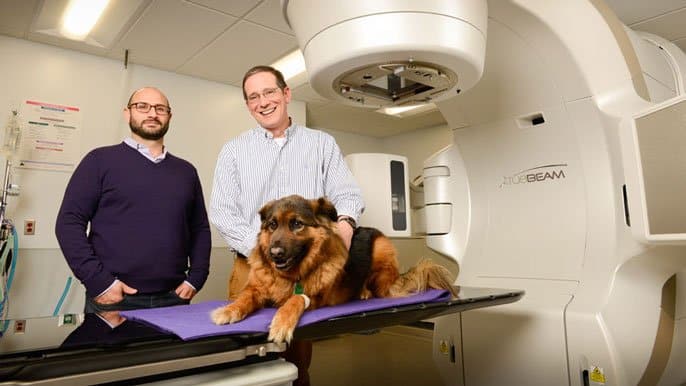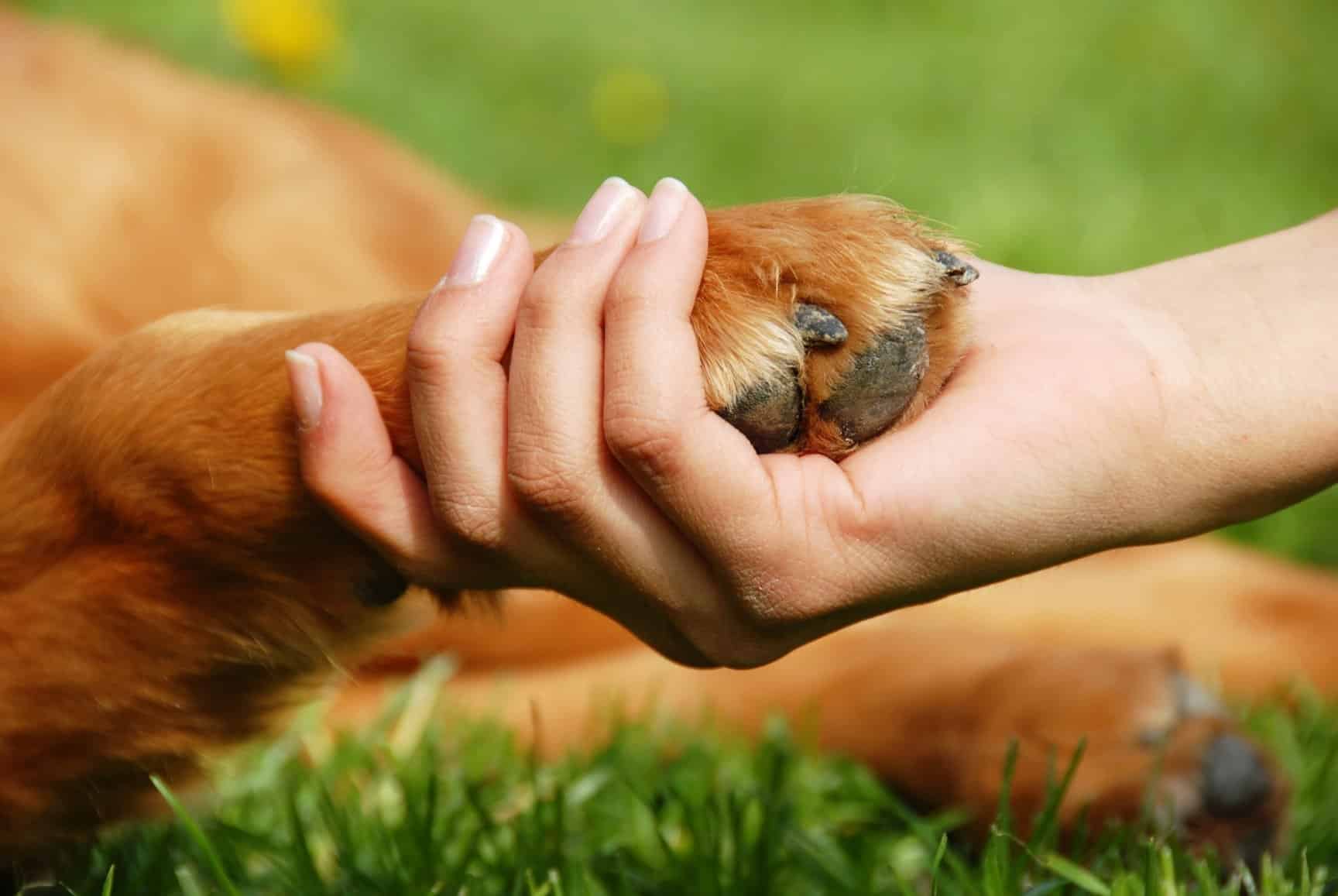Dogs Biting Could Help Us Find Successful Cancer Therapy For Humans
Man(kind)’s best friend.
Dogs are the world’s most precious and noble creatures. Preciousness is encoded in their DNA, manifesting in every tail-wag and bark. They inspire that acute feeling of pure adoration that’s almost too much to handle- that bubble of joy that cannot be satiated by a mere pat. No, it requires a solid 10-minute cuddle.
As if they don’t take on enough roles already, doggos are now taking on another huge role of responsibility- helping treat human cancers since the biology of dogs and humans is so similar.
Melanoma, lymphoma, gliomas — all of these types of cancer affect both dogs and people. For that reason, dogs make excellent models for better understanding not only how cancer forms in humans, but also in developing more efficient treatments.
This field of comparative medicine — using animals to better understand and treat human disease — is not new; creatures such as mice, rats, and actual guinea pigs have long been the mainstay of medical research and studies of experimental drugs. What’s different is that veterinarians are now conducting rigorous clinical trials of new treatments with the hope they might eventually benefit
humans as well as the family pet. Increasingly, they’re using dogs and cats and other companion animals in these experiments, as medical researchers recognize the limitations of traditional lab animals.Dogs and cats get cancer spontaneously, like humans, so their cancers are more biologically relevant to humans than the cancers that are artificially induced in lab animals. In some cancers, dog and human tumors are indistinguishable under a microscope. Surgical techniques can easily be adapted from dogs to humans, as they have been in limb-saving bone cancer surgery. And dogs are much closer in size to humans than are lab animals.
Dr. Michael Kent, a radiation oncologist with the UC Davis School of Veterinary Medicine, is now collaborating with Dr. Arta Monjazeb, a radiation oncologist at the UC Davis Comprehensive Cancer Center, to examine the use of a novel therapy in treating advanced metastatic disease in dogs.

“There’s things we find in the lab that we think might be helpful, then we get to the clinic and they either don’t work or are toxic,” said Dr. Arta Monjazeb.
Other vets are testing stem cell treatments on pets, as well as cutting-edge CAR-T cell therapy, which harnesses a patient’s own immune system to kill cancer cells. Kent has a new paper coming out soon on using a dog’s own natural killer cells, a type of blood cell, to attack osteosarcoma, a bone cancer that’s remarkably similar in humans and dogs.
“The field is building momentum,” said Dr. Kathryn M. Meurs, associate dean at the North Carolina State College of Veterinary Medicine, which is part of a large Comparative Medicine Institute where veterinarians regularly collaborate with doctors at Duke University and the University of North Carolina. “It’s taking on more substantial problems like cancer, infectious disease, cardiology and neurology,” she said.
At many of the nation’s top veterinary schools — and even at prestigious medical schools such as Stanford — veterinarians are working closely with M.D.s and Ph.D.s to further clinical research in a host of intractable diseases using a broad range of animals.
While Kent is excited about the potential of his research on cancer, he makes it clear that the subjects of his research are patients first.
“I’m not going to do anything to advance science at the cost of my patients. The first thing is do no harm,” said Kent, speaking in his office near a wall covered with dozens of photos his patients’ owners have given him over the years. “But if we can learn from them, and help them as well, that’s a really good goal. And if we can help humans as well, that’s great.”






























